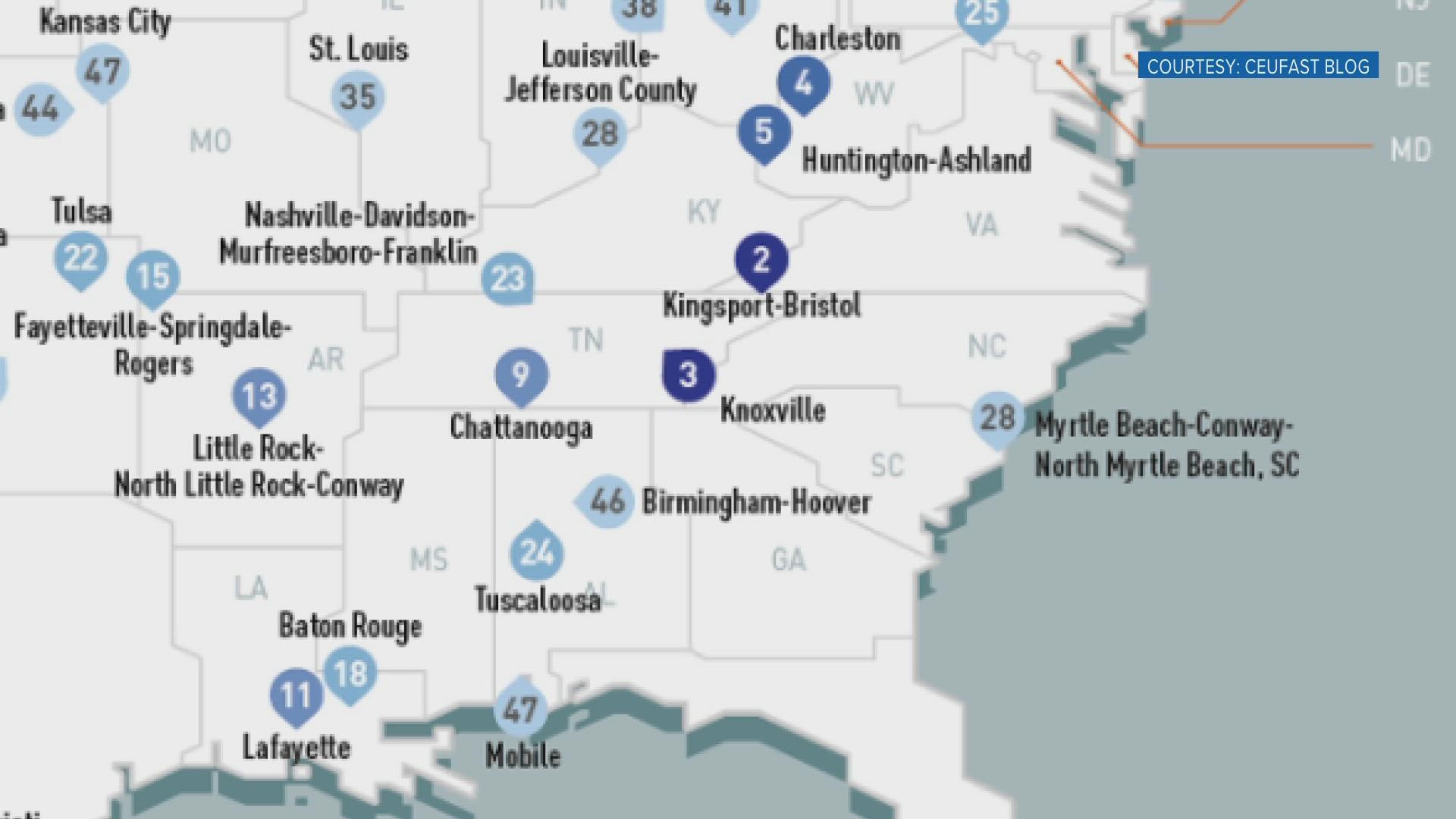KNOXVILLE, Tenn. — According to a study from CEUfast, two East Tennessee cities are among the top three cities across the U.S. struggling with high rates of depression. Knoxville ranked third in a new study.
CEUfast is an accredited online nursing service that connects people hoping to become registered nurses with courses they can take to get educational credits. They are accredited by the American Nurses Credentialing Center's Commission on Accreditation.
They said around 40 million adults are affected by depression in the country. They collected data from the Centers for Disease Control and Prevention for the survey, basing the survey on the number of residents in each city who were told they have some form of depression.
At the top of the list was Billings, in Montana. It was followed by Knoxville, and below that was the Kingsport-Bristol area. Chattanooga also ranked ninth in the study.
The senior director of the McNabb Center, Shannon Dow, said there could be some barriers preventing people from accessing mental health care.
"Some of those barriers can include transportation issues, where people who are living in poverty don't have the means to travel to mental health treatment centers," said Dow. "It would be difficult for them to access mental health care."
She said the COVID-19 pandemic intensified some mental health issues people could have already been facing. However, she also said that the McNabb Center helps anyone who walks through their doors.
"We have services that support those who are uninsured, or underinsured. We also have case management services that help individuals to meet their basic needs," she said. "There is help. There is treatment. And if you are experiencing any symptoms that are impairing your function, we encourage you to seek help."
According to the National Institute of Mental Health, depression takes many forms. People may face Major Depression, which means they have already faced symptoms for two weeks that interfere with their ability to work, sleep, study and eat.
They may also have Persistent Depressive Disorder, previously called "Dysthymia." This disorder is marked by less severe symptoms that last for more than 2 years.
Regardless of the specific symptoms, anyone who wants help can reach out to the McNabb Center online or by calling 1-800-255-9711.

